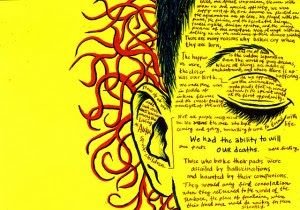Grade 12 English Unit 8: Human Culture (with Grammar Solutions)- Language Development
Reading
Land of Plenty
Working with words
A. Complete the given sentences with the suitable words from the box.
wrapped | embarrassment | abundance | ordinary
teetering | outskirts | dragging
a. The annual report has caused acute …………………… to the government.
b. Ellen has worn high-heels. She is ……………………
c. Look! The poor horse is ……………………………. a heavy load.
d. As they approached the …………………….. of the city, Ella's mood visibly lightened.
e. The parcel was ………………………. in plain brown paper. It still looks attractive.
f. Fruits and vegetables grow in ………………………. in the Terai region.
g. They can abstract precious medicines from …………………… substances.
B. Word formation is a process in which new words are formed from base or root words by adding prefixes or suffixes. A root word can be a verb, noun, adjective, or adverb. See the following examples.
|
Root word |
Suffix |
New word |
|
govern (v.) |
-ment |
government (n.) |
|
perfect (adj.) |
-ion |
perfection (n.) |
|
service (v.) |
-able |
serviceable (adj.) |
|
beauty (n.) |
-full |
beautiful (adj.) |
|
warm (adj.) |
-ly |
warmly (adv.) |
C. Add suitable suffix to the root words given and write the parts of speech of each newly formed word.
|
Root word |
Suffix |
New word |
|
neighbour, comfort, shop, husk, squeamish, change, shine, colloquial, collect, embarrass, persuade, type, differ, ship, tropic, drive, reside, brother, fresh |
ment, ly, ion, hood, ness, er, ical, ic, able, y, |
Neighbourhood (n), comfortable (n), shopper (n), husky (adj), Changeable (adj), shiny (adj), colloquially (adv), Collection (n), squeamishness (n), typical, driver, brotherhood, fresher |
Sewage- Liquid and solid waste carried off in sewers or drains
Sludge- thick, soft, wet mud or a similar viscous mixture of liquid and solid components, especially the product of an industrial or refining process.
Organic waste- Organic waste is any material that comes from either a plant or an animal, and can be decomposed
Inorganic waste-Inorganic wastes are chemical substances of mineral origin (sand, salt, iron, calcium, and other mineral materials)
Methane- a colourless, odourless flammable gas that is the main constituent of natural gas.
Waste reduction- the practice of using less material and energy to minimize waste generation and preserve natural resources.
Monofil- a single strand of man-made fibre.
Incineration-the destruction of something, especially waste material, by burning.
Hazardous waste- Hazardous waste is waste that has substantial or potential threats to public health or the environment. Clinical wastes; Waste oils/water, hydrocarbons/water mixtures, emulsions
Grammar
Adjectives and adverbs
A. Observe the following examples carefully.
a. The trash is wrapped in neat bundles.
b. We realize that sodaigomi is a part of a larger cycle.
c. In the morning, the choicest items are gone.
d. I looked around me quickly, and I happily picked up one bookcase with both arms.
B. Use the words from the brackets to complete the sentences.
a. This house is very small. I want to buy a much bigger one. (much / big)
b. I liked the magic show. It was far more exciting than I’d expected. (far / exciting)
c. It was very cold yesterday. It’s a bit warmer today. (a bit / warm)
d. The warmer the weather the better I feel. (good)
e. An average American earns considerably higher than an average Nepali. (considerably / high)
f. Health care in Nepal is not as expensive as it is in the US. (expensive)
g. I think the problem is far more complicated than it seems. (far / complicated)
h. You are driving very fast. Would you please drive a bit slowly? (a bit/ slowly)
i. Your handwriting is not legible. Can you write a bit neatly? (a bit/ neat)
C. Rewrite the following sentences with the sentence beginnings given below.
a. Kabir is less intelligent than he pretends. He is not as intelligent as he pretends.
b. I am busy today but I was busier yesterday. I’m not as busier today as I was yesterday.
c. Hari has lived in Kathmandu for 10 years but Bikram for 20 years. Bikram has lived 10 years more than Hari in Kathmandu.
d. I used to study 12 hours a day but nowadays I study only 5 hours a day. I don’t study as much as I used to.
e. It’s a very good room in our hotel. In fact, it’s the best of all rooms.
f. He earns 30 thousand rupees a month but spends 40 thousand. He spends 10 thousand more than he earns.
g. There is no other mountain higher than Mt. Everest in the world. Mt. Everest is the highest mountain in the world.
h. The place was nearer than I thought. It was not as far as I had thought it to be.
i. Bharat can play better than Mohan. Mohan can’t play better than Bharat.




Comments
Post a Comment